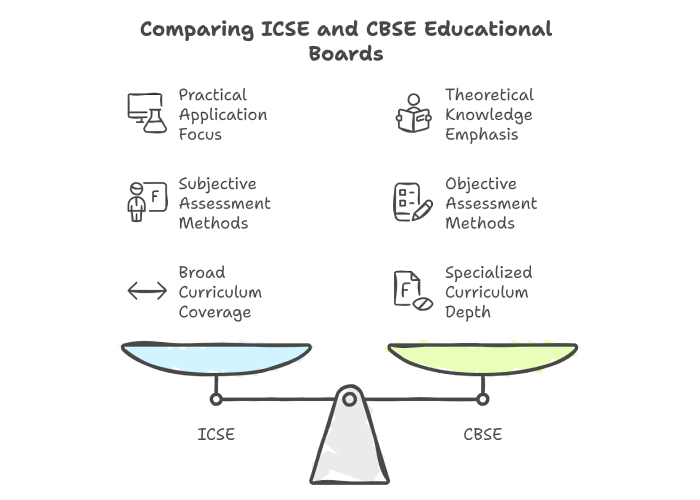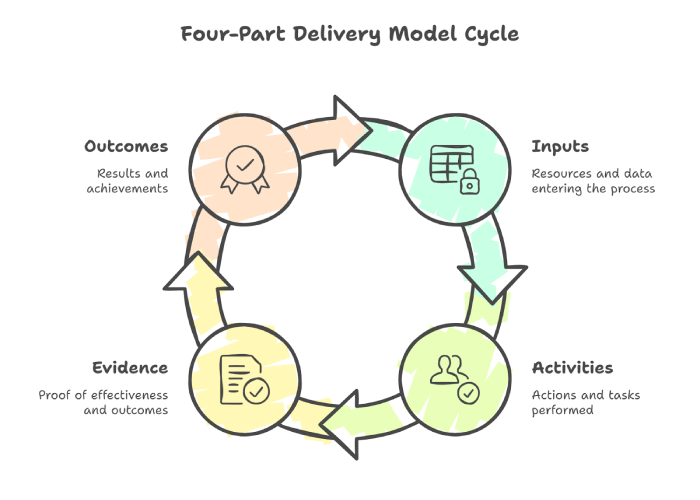Redefining Classroom Delivery with the Latest ICSE Syllabus Insights
- Home
- /
- Redefining Classroom Delivery with the Latest ICSE Syllabus Insights
Indian classrooms are evolving quickly as the latest ICSE syllabus now places clearer emphasis on higher-order thinking, practical application, and inclusive assessment. In 2025, schools under CISCE began receiving guidance that approximately a quarter of board questions would target application, analysis, evaluation, and creativity, pushing delivery beyond rote learning.
What changed in the ICSE syllabus, and why it matters
School leaders have three signals to work with. First, the Council has expanded and clarified subject frameworks, including vocational offerings such as ‘Robotics and Artificial Intelligence,’ which encourage authentic, concept-rich tasks. Second, specimen papers now model the expected rigour teachers can see the balance between structured items and competency-focused prompts. Third, regulations reinforce internal assessment as an integral component that sits alongside written papers. Together, these points reward Concept-Based Learning, Inquiry-Based Learning, and classroom practices that surface thinking rather than recall.

What this means for day-to-day delivery
You will need tighter alignment between syllabus aims, Curriculum Mapping In Education, and what happens period by period. Plan units with explicit performance evidence, not just coverage. Use Digital Classroom Tools to scaffold analysis, and make space for short investigations, structured discussions, and mini-products that mirror specimen expectations. This is where Effective Classroom Management Techniques move from generic advice to timetable reality. Transitions, routines, and clear rubrics free up cognitive space for reasoning.
ICSE versus CBSE: planning classroom delivery across boards
Many Indian schools straddle boards or compare outcomes closely. If you are weighing ICSE vs CBSE Board Syllabus: Which Is Better?, remember that both systems are moving towards competency focus under NEP. CBSE has already scaled the proportion of competency questions in recent cycles, while ICSE has signalled approximately 25 percent at Class X. The practical takeaway is not a contest but a delivery design. Build a core that privileges argumentation, modelling, and interpretation, and your classes will meet Difference Between ICSE And CBSE Syllabus expectations without creating parallel lesson sets.

A comparison lens that helps teachers
-
Map common skills across both boards, then prioritise inference, representation, and explanation.
-
Use anchor tasks that can flex up or down for board-specific formats.
-
Share Learning Outcomes Examples internally so teachers can calibrate difficulty and evidence.
A four-part delivery model for the new ICSE classroom
1) Plan with a ‘concept spine’: Start each unit from a disciplinary idea, align activities with that idea so Concept-Based Learning drives choices. Use a Curriculum Development Model that links aims, assessment, and instruction, using which teachers can write success criteria early, then choose tasks.
2) Teach for inquiry and production: Build lessons that use Inquiry-Based Learning protocols to have students pose questions, test claims, and create artefacts. Place Project-Based Learning Programs across the term so students practise extended reasoning and add short, low-stakes rehearsals to build fluency.

3) Assess what you value: Set classroom questions that mirror specimen patterns and vary stems that ask students to apply, compare, justify, and critique. Use a Student Progress Tracking System to capture formative signals weekly and convert them into individual goals and brief reteach plans.
4) Strengthen teacher capability: Run Professional Development for Teachers on questioning, modelling, and feedback. Pair lesson study with video reflection, standardise artefact galleries so teachers see what “good” looks like across subjects.
Delivery playbook: ten practical moves for next Monday
-
Open with a ‘why’ question, then hold two minutes of silent think time
-
Model one worked example, then ask learners to explain which step mattered most
-
Replace one drill with a judgment call and then let the learners justify a choice in writing
-
Use Digital Classroom Tools for quick polls that test misconceptions
-
Run a three-minute pair-probe in which each learner must cite textual or numerical evidence
-
Insert a micro-project where a small group creates a diagram or paragraph that teaches an idea
-
Write a hinge question that mirrors the specimen paper and then collect responses mid-lesson
-
Close with Learning Outcomes Examples, like learners annotate what met the bar
-
Log results in the Student Progress Tracking System in this name, one next step per learner
-
Note a teacher's move to try tomorrow, which you can share at your weekly clinic on Effective Classroom Management Techniques
Trend watch: NEP 2020 and the near future of ICSE classrooms
CISCE’s direction aligns with NEP 2020 In Education as competency focus will not recede. Expect incremental shifts towards application-heavy questions, stronger internal assessment design, and deeper vocational choice at the secondary stage, including pathways that speak to STEM Education In India. For school leaders, this is less about adding gadgets and more about routines that surface thinking, writing, and evidence.
Why choose NatureNurture
NatureNurture partners with Indian schools to convert syllabus intent into classroom practice. We co-design unit plans that foreground concepts, coach teachers in Inquiry Based Learning, and build assessment systems that match specimen expectations. Our team helps you adopt Digital Classroom Tools judiciously, write robust rubrics, and scale Professional Development for Teachers across departments.

Conclusion
The latest ICSE syllabus is an invitation to teach for understanding. Lead with concepts, organise inquiry, and assess for reasoning. By these steps, your classrooms will be exam-ready and future-ready. If you need a co-pilot, NatureNurture can help your staff plan, teach, and review with confidence.
Explore how NatureNurture can help your teachers plan inquiry-rich units, write robust assessments, and improve outcomes across subjects. Share your focus area, and we will send a tailored starter kit.
©2025 NatureNurture

